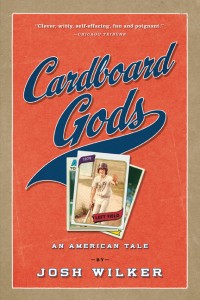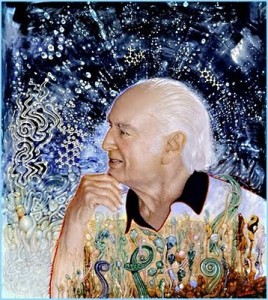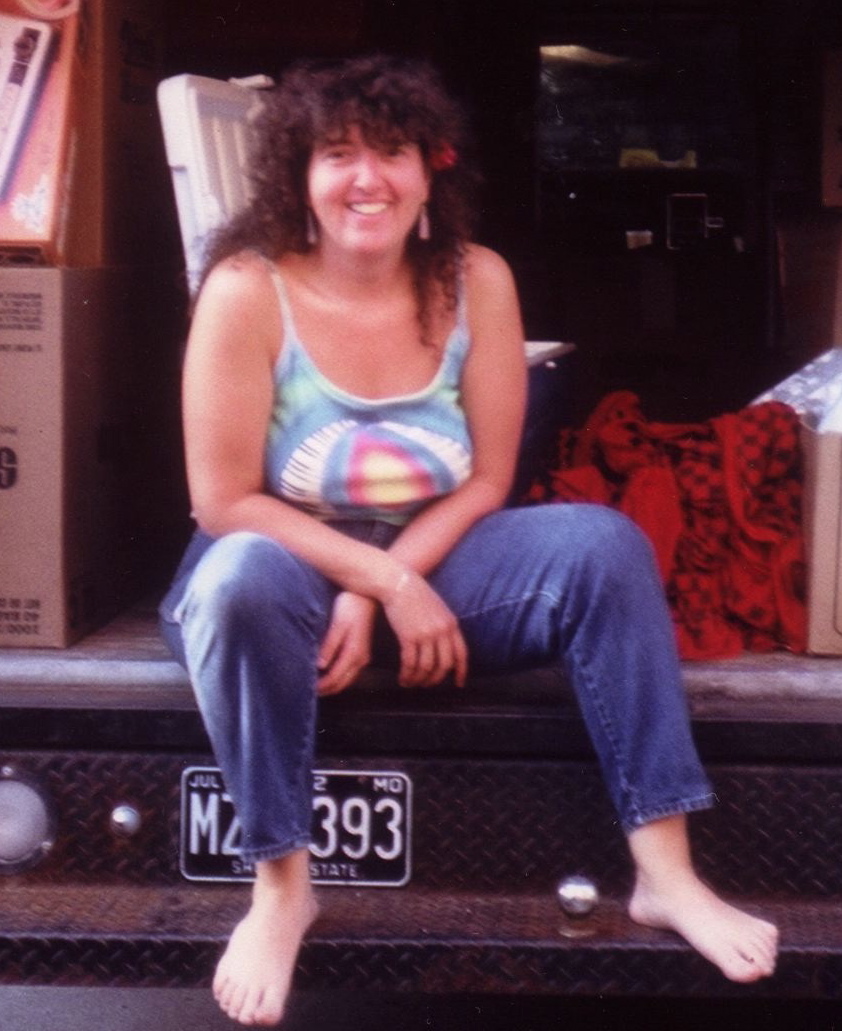
Paperback edition of Josh Wilker's Cardboard Gods
One day last year I was paging through an issue of Entertainment Weekly when I arrived at a spread they run every few issues, containing about 4 pages of gift ideas. It’s the sort of seemingly paid marketing/alluring editorial hybrid feature that typically bugs me, but EW does it so well. It’s rare that I don’t read that section without briefly considering purchasing some fancy electronics item that feeds into my deep sense of nostalgia. The people who put together that section have a remarkable knack for knowing what feeds the emptiness of a middle-aged, middle-class man’s consumer life. How I miss the days of being so excited over the release of a new Elvis Costello record that I was once willing to follow my friend’s idea of breaking into his friend’s parents’ extremely permissive house to listen to our new purchase over a bone, I think to myself. Next thing I know I’m seeing if I can justify dropping $299 on an mp3 player/clock radio that’s in the form of a Close ‘N Play phonograph.
One day a book recommendation caught my eye, an actual, affordable hardcover book. Maybe it was part of one of these marketing-driven spreads or maybe it was part of the book reviews section—after you’ve read EW for a while it’s easy to lose all distinctions between marketing and editorial. Whatever. The book was called Cardboard Gods, by someone named Josh Wilker. The review read, in part:
A baseball-loving loner deciphers his complicated childhood through his old box of trading cards. . . . Wilker’s book is as nostalgically intoxicating as the gum that sweetened his card-collecting youth. [Grade:] A —Entertainment Weekly
There was no need for excruciating self-analysis and consideration of this item’s ability to fill The Void. I put a big lower corner dog ear on that page of the magazine (ie, my “important point to revisit” dog ear rather than the smaller placeholder one at the upper corner of where I left off reading) preparation for my next trip to the “library.” I re-read the review a few more times, each time getting more excited at the prospect of revisiting my own life as a baseball card collector, solitary baseball board-game player (and more importantly, manager and league commissioner), and generally desperate kid who was in need of the power provided by the sport’s over-arching history and frequent periods of anticipation (ie, what non-baseball lovers call “all the boring parts”). A couple of days later, without hesitation, I picked up a copy of Cardboard Gods and proceeded to tear through it, cover to cover, in the course of a weekend.
The book was everything I could have imagined, with color reproductions of a mid-’70s–era baseball card kicking off each chapter’s meditation on what that player’s card meant in the lovingly dysfunctional childhood world of its author. It was so much fun to tap into another kid’s relationship and chew on life’s inner meanings while contemplating baseball cards of the likes of Rudy Meoli, Mike Kekich, and Mike Cosgrove (no, not that one). This wasn’t some thumbsucking attempt by Wilker to explain away his life according to an in-vogue branch of pop psychology or the agenda of a “special interests” group, as is too-often the case these days. This book was nice and messy—and truly personal, the way we were more comfortable being in the Do Your Own Thing 1970s. In the words of fully satisfied moviegoers of my youth, I laughed and I cried.
Soon after reading the book I found Wilker’s Cardboard Gods blog and became a regular visitor there. I wrote him a gushing e-mail and over the course of a few e-mail exchanges learned that he was also a music obsessive. Baseball: check. Music: check. Good egg? Highly likely! A few weeks ago I read that Cardboard Gods was being released in paperback. I wrote Wilker and asked if he’d consent to a Rock Town Hall interview that would attempt to further bridge the relationship between baseball and music and their roles in the predominantly male means of sharing personal information. Good egg that he is, Wilker was all for this chat. If you haven’t done so already, I highly recommend checking out Carboard Gods, both in book and blog form. Batter up!
RTH: The Cardboard Gods blog preceded your book, right? (I was late to the party, learning of your book before being directed to the blog.) Was there a turning point in writing the blog that you realized you actually could organize a full-blown memoir through the prism of your card collection?
Josh Wilker: For most of my adult life I have been on the lookout for things that might develop into a book, a habit that has almost always crushed the life out of whatever it is that might have otherwise developed organically if I just gave it some space to grow. And I started the blog as an anti-book in a way, since I’d just finished several years working on a novel that I wasn’t able to sell and I was a little discouraged and just trying to have some fun. That said, I think I had the feeling almost immediately, like a tug on the end of a line, that there was something going on with the baseball cards, but I consciously tried to put thoughts of a book aside for a while and just have fun and go wherever the cards wanted to go.
RTH: Baseball in the mid- to late-’70s, like the world of your childhood, experienced a latent period of counterculture-rooted self-awareness. As a boy were there certain players who best represented your family’s new world? Were there other players you felt represented the “square” world your family was leaving?



